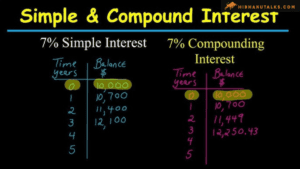
IEX Shares Extending Losses for the Second Day: Coupling Fears and Earnings Impact
Contents


- Background of IEX Shares: Indian Energy Exchange Ltd. (IEX) shares have been experiencing a significant drop over the last two days due to fears surrounding the possible implementation of market coupling in power exchanges. The stock dropped by 3.5% on Wednesday, following a steeper decline of nearly 12% on Tuesday. This decline comes after the stock had surged by 33% in the previous month.
- Trigger for the Decline – Market Coupling: The decline in IEX shares was triggered by a report from a government source, which indicated that market coupling of power exchanges is likely to happen. However, there is no clear timeline for its implementation. Market coupling is a mechanism where buy and sell bids from all power exchanges are aggregated and matched, leading to a uniform price for electricity trading at any given point. The uncertainty around this policy and its potential impact on IEX has caused the sharp drop in its stock price.
- Concerns and Simulations: According to IEX’s management during the June quarter earnings call, simulations showed no evident benefits of market coupling. Additionally, software development needed for this process is still in progress and facing delays. The Central Electricity Regulatory Commission (CERC) emphasized the need for more evidence-based results before market coupling is implemented. A shadow pilot of the system is expected to be conducted for four months after the necessary software is ready.
- Analyst Reactions and Market Share Impact: Analysts are concerned that market coupling could lead to a decline in IEX’s dominant market share. Currently, IEX holds an 84% market share, but Elara Securities projects that this could drop to 70% by FY2027. They also anticipate a 19% to 20% reduction in IEX’s Earnings Per Share (EPS) estimates for FY2027 due to market coupling.
- Other Market Reactions: Motilal Oswal, a well-known brokerage firm, initiated coverage on IEX with a neutral rating, citing the potential negative impact of market coupling on the stock’s growth prospects. They project downside risks from the current levels, given IEX’s significant exposure to power exchange pricing.
- Trading Activity and Stock Performance: Despite the recent drop, IEX shares have still seen a 21% rise in 2024, largely due to the sharp surge in the previous month. However, with the stock hitting a 52-week high on Tuesday morning before the correction, it remains volatile. Notably, the stock is currently in the Futures and Options (F&O) ban, meaning no new positions can be created in it.


Advantages of IEX Shares and Market Outlook
- Market Leadership: IEX currently holds a dominant position with an 84% market share in the power trading sector.
- Resilient Stock Performance: Despite recent losses, the stock has still seen a 21% increase in 2024, demonstrating resilience.
- Buy Ratings from Analysts: A majority of analysts (8 out of 13) maintain a “buy” rating on the stock, signaling long-term confidence in its growth prospects.
- Long-term Growth Potential: With India’s growing focus on renewable energy and infrastructure development, power trading platforms like IEX are expected to benefit in the long run.
Disadvantages of IEX Shares and Concerns
- Impact of Market Coupling: If market coupling is implemented, it could significantly reduce IEX’s market share from 84% to 70% by FY2027, leading to lower revenue and earnings.
- EPS Estimates Cut: Analysts anticipate a reduction of up to 25% in IEX’s EPS for FY2026 due to potential changes in the power exchange structure.
- Short-term Volatility: Recent sharp declines in the stock, triggered by market coupling fears, indicate short-term volatility, making it risky for certain investors.
- Software Development Delays: Delays in software development needed for market coupling could create uncertainties in the timeline for regulatory changes.
Conclusion:
IEX shares have faced significant short-term pressure due to fears surrounding the implementation of market coupling, which could erode its dominant market position. However, the long-term outlook for the company remains positive, especially with India’s increasing power consumption and infrastructure focus. Investors need to balance the immediate risks of market coupling with IEX’s strong market position and potential future growth.

FAQs
- What is causing the recent decline in IEX shares?
IEX shares are declining due to fears surrounding the potential implementation of market coupling in power exchanges, which could impact the company’s market share and earnings. - What is market coupling?
Market coupling is a model where the buy and sell bids from all power exchanges are aggregated to determine a uniform price for electricity trading, potentially affecting individual power exchange pricing. - What impact will market coupling have on IEX?
If market coupling is implemented, IEX’s market share could drop from 84% to 70% by FY2027, leading to lower revenue and EPS. - How have analysts reacted to the news of market coupling?
Some analysts have downgraded their earnings estimates for IEX, with reductions of up to 25% for FY2026, though a majority still maintain a “buy” rating on the stock. - Is IEX a good long-term investment?
Despite short-term challenges, IEX remains a leader in the power trading market, and its long-term prospects are promising, especially as India’s power sector expands.
Larsen & Toubro Bags Mega Orders Worth Up to Rs 15,000 Crore to Revolutionize Middle East Power Grids





















Post Comment